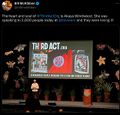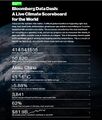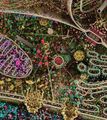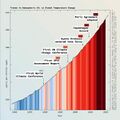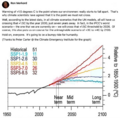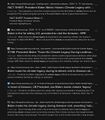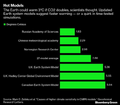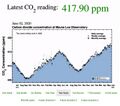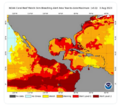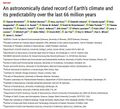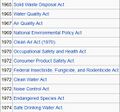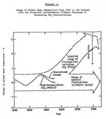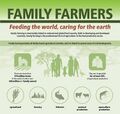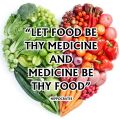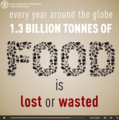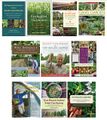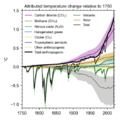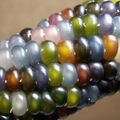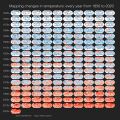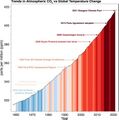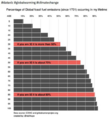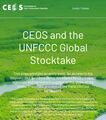Category:Alternative Agriculture: Difference between revisions
Siterunner (talk | contribs) No edit summary |
Siterunner (talk | contribs) No edit summary |
||
| Line 20: | Line 20: | ||
‘More environmentally and socially sensitive approach to agriculture, one that focuses not only on production, but also on the ecological sustainability of the productive system.’ | ‘More environmentally and socially sensitive approach to agriculture, one that focuses not only on production, but also on the ecological sustainability of the productive system.’ | ||
'''Biodynamic Agriculture''' https://www.biodynamics.com/nabdap-participating-mentor-farms - https://www.google.com/maps/d/viewer?t=m&source=embed&mpf=0&ctz=360&ie=UTF8&msa=0&mpa=0&z=3&hl=en&mid=z2SuxSk8DOIM.kTVFZLgKgguk | '''Biodynamic Agriculture''' https://www.biodynamics.com/nabdap-participating-mentor-farms - [https://www.google.com/maps/d/viewer?t=m&source=embed&mpf=0&ctz=360&ie=UTF8&msa=0&mpa=0&z=3&hl=en&mid=z2SuxSk8DOIM.kTVFZLgKgguk Biodynamic video] | ||
‘Concept and practices of Dr. Rudolph Steiner emphasizing forces within living nature…’ | ‘Concept and practices of Dr. Rudolph Steiner emphasizing forces within living nature…’ | ||
Revision as of 16:14, 1 January 2015
http://www.greenpolicy360.net/w/Alternative_Agriculture
Alternative Agriculture
-- From The Little Green Book by GreenPolicy360
Overview
Environmentally-friendly agriculture/farming/gardening practices
○ ○ ○ ○
(Resources - alphabetical)
○ ○ ○ ○
Agroecological Farming http://www.greenpolicy360.net/w/Agroecological_Farming
‘More environmentally and socially sensitive approach to agriculture, one that focuses not only on production, but also on the ecological sustainability of the productive system.’
Biodynamic Agriculture https://www.biodynamics.com/nabdap-participating-mentor-farms - Biodynamic video
‘Concept and practices of Dr. Rudolph Steiner emphasizing forces within living nature…’
Biointensive Gardening http://growbiointensive.org/ - http://en.wikipedia.org/wiki/Biointensive_agriculture
‘John Jeavons and Ecology Action have refined a production system that makes it possible for one person to grow all of his or her family's food using truly sustainable methods that maintain the fertility of the soil without relying on nonrenewable resources like petrochemicals or imported organic matter.’
Biological Farming https://www.youtube.com/watch?feature=player_embedded&v=fVSCK5wz5_4
‘Biological and Ecological Farming are terms commonly used in Europe and developing countries… Biological farming are systems of crop production in which the producer tries to minimize the use of 'chemicals' for control of crop pests, emphasizing sustainability.’
Climate Smart Agriculture http://www.greenpolicy360.net/w/Climate_Smart_Agriculture
‘Agriculture practices designed to be sustainable while minimizing damaging impacts of the environment.’
Community Supported Agriculture http://www.localharvest.org/csa/ - http://www.localharvest.org/organic-farms/ - Local Farms - Maps There are almost two million farms in the USA. About 80% of those are small farms, and a large percentage are family owned. More and more of these farmers are now selling their products directly to the public. They do this via CSA programs, Farmers' Markets, Food Coops, u-picks, farm stands, and other direct marketing channels.
‘CSA’s consist of a community of individuals who pledge support to a farm operation so that the farmland becomes, either legally or spiritually, the community's farm, with the growers and consumers providing mutual support and sharing the risks and benefits of food production.’
Natural Farming http://en.wikipedia.org/wiki/Natural_farming
‘Natural Farming reflects the experiences and philosophy of Japanese farmer Masanobu Fukuoka…’
Organic Farming http://en.wikipedia.org/wiki/Organic_farming
Organic farming was championed in the United States by J.I. Rodale, beginning in the mid-1940s. "The organic farmer and gardener must realize that fertilization is not the only measure for success. He must treat the soil as a living, breathing entity. He must rotate crops. He must fallow the land at regulated intervals. The organiculturist must not practice one-crop monoculture but must engage in a balanced agriculture with cattle as part of the general program. He must be smart in the ways of soil and crops, observing the reaction of the land to the actions of man. For instance, he must know when to plant, when to harvest, and what varieties of seed to use. Compost alone does not make a successful gardener any more than does gardening without compost." ["The Organiculturist’s Creed," in The Organic Front]
As defined by a USDA Study Team on Organic Farming, "Organic farming is a production system which avoids or largely excludes the use of synthetically compounded fertilizers, pesticides, growth regulators, and livestock feed additives.
The following definition was drafted and passed by the USDA National Organic Standards Board (NOSB) in April 1995. It was developed by a joint NOSB/National Organic Program task force, and incorporated language from the Codex Draft Guidelines for organically produced foods: "Organic agriculture is an ecological production management system that promotes and enhances biodiversity, biological cycles and soil biological activity. It is based on minimal use of off-farm inputs and on management practices that restore, maintain and enhance ecological harmony. ‘Organic’ is a labeling term that denotes products produced under the authority of the Organic Foods Production Act. The principal guidelines for organic production are to use materials and practices that enhance the ecological balance of natural systems and that integrate the parts of the farming system into an ecological whole.”
"Organic food is produced by farmers who emphasize the use of renewable resources and the conservation of soil and water to enhance environmental quality for future generations. Organic meat, poultry, eggs, and dairy products come from animals that are given no antibiotics or growth hormones. Organic food is produced without using most conventional pesticides; fertilizers made with synthetic ingredients or sewage sludge; bioengineering; or ionizing radiation. Before a product can be labeled "organic," a Government-approved certifier inspects the farm where the food is grown to make sure the farmer is following all the rules necessary to meet USDA organic standards. Companies that handle or process organic food before it gets to your local supermarket or restaurant must be certified, too." [What is organic food? (USDA, Agricultural Marketing Service, National Organic Program (NOP))]
Permaculture http://www.greenpolicy360.net/w/Permaculture_Green_Practices
‘A contraction of "permanent agriculture," the word "permaculture" was coined by Australian Bill Mollison in the late 1970s. One of the many alternative agriculture systems described as sustainable, permaculture is "unique in its emphasis on design; that is, the location of each element in a landscape, and the evolution of landscape over time. The goal of permaculture is to produce an efficient, low-maintenance integration of plants, animals, people and structure... applied at the scale of a home garden, all the way through to a large farm." [John Quinney, "Permaculture in the United States.]’
Regenerative Agriculture http://en.wikipedia.org/wiki/Regenerative_agriculture
‘Robert Rodale coined this term, and it subsequently was expanded to "regenerative/sustainable agriculture" by the Rodale Institute and Rodale Research Center.’
Sustainable Agriculture http://en.wikipedia.org/wiki/Sustainable_agriculture
‘Agriculture within a system of sustainable development looks to ... "meet the needs of the present without compromising the ability of future generations to meet their own needs." [The World Commission on Environment and Development].’
Self-sustaining Farming Self-sustaining farm and urban-farm video tutorials
‘Small-scale’, ‘micro-farming intended to produce enough food for self-sufficient living. Often less than an acre up to five acre size farms.’
Small Plot Intensive http://www.spinfarming.com/buy/pick-your-farm-model
-=-=-=-=-=-=-=-=-=-=-
Alternative Agriculture
More Alt Agra Topics
- World Food Day: Family farms produce over 80% of food globally
http://www.worldfooddayusa.org/
- Alternative Ag v Big Ag -- alternatives to conventional foliar pest controls and the controversial soil fumigant, methyl bromide
-- http://pacificagresearch.com/aa_OrganicTechnologyImplementation.asp
- The Seed War
https://www.youtube.com/watch?v=3K7MDgr5ErQ
○ ○ ○ ○
GreenPolicy360 Agriculture-related Categories:
Subcategories
This category has the following 8 subcategories, out of 8 total.
Pages in category "Alternative Agriculture"
The following 65 pages are in this category, out of 65 total.
A
C
G
- Generation Green
- Glasgow Climate Summit - Pledges, Promises, Declarations - What's Next Up
- Going Green: Texas v. Pennsylvania
- Google Earth
- GP360 NewPages
- Green Best Practices
- Green Education
- Green Marketing
- Green New Deal
- Green Politics 360
- Green Revolution in Africa, opinions NY Times 2015
- GreenPolicy360 Highlights
P
Media in category "Alternative Agriculture"
The following 200 files are in this category, out of 450 total.
(previous page) (next page)- 2020 record temperatures.png 800 × 502; 358 KB
- 7-20-2020 GreenPolicy360 RT No.2.jpg 591 × 510; 125 KB
- A Planet Citizen View.png 799 × 1,241; 1.64 MB
- A scorching year, what about the 360 warming data.jpg 600 × 706; 106 KB
- AB 2480 Meadows and Forest Water Infrastructure.png 481 × 375; 248 KB
- Acceptance on behalf of the United States of America.png 448 × 306; 62 KB
- Act now for a livable future.png 501 × 275; 272 KB
- Ag production and GHG emissions.jpg 680 × 510; 33 KB
- Agriculture and seeds.jpg 1,920 × 1,080; 1.16 MB
- Agroforestry-2.jpg 752 × 600; 149 KB
- Amazon fires burn across the rainforest.jpg 800 × 504; 76 KB
- AOC March 26, 2019.jpg 597 × 433; 58 KB
- AOC re climate task force - july 8 2020.jpg 585 × 203; 38 KB
- Apple varietals.jpg 600 × 314; 30 KB
- Arable land percent world.png 1,357 × 628; 40 KB
- Atmosphere Science.jpg 800 × 600; 45 KB
- Banking - finance - climate - Mann-1.jpg 452 × 640; 162 KB
- Banking - finance - climate - Mann-2.jpg 452 × 640; 164 KB
- Biden - clean energy ambitions.JPG 640 × 334; 31 KB
- Biden introduces leadership team - Nov 24 2020.jpg 800 × 644; 173 KB
- Biden selects Kerry as special climate envoy.jpg 592 × 505; 87 KB
- Biden urged to act - Oct 18 2021 - The Guardian.png 663 × 600; 497 KB
- Biden's assembled an all-star climate team 4-21-2021.jpg 682 × 732; 309 KB
- Biden-Harris, CNN News Online - Nov 8, 2020.jpg 800 × 484; 114 KB
- Biden-Sanders Unity Task Force on Climate.jpg 701 × 780; 139 KB
- Big Oil Rocked by News May 27 2021.jpg 639 × 600; 84 KB
- Biggest climate related legislation in history - 1.png 800 × 188; 68 KB
- Biggest little farm-1.jpg 800 × 533; 123 KB
- Biggest-Little-Farm.png 665 × 319; 455 KB
- Bill Mollison 1928-2016.pdf ; 99 KB
- Bill Mollison courtesy of Permaculture magazine.jpg 460 × 300; 0 bytes
- Bill Mollison experience.png 792 × 612; 459 KB
- Bill Mollison the day after his passing memories.png 1,381 × 651; 1.65 MB
- Bill Nelson on Global Temp Rise and Climate Change.png 640 × 353; 100 KB
- Bill Nye The Planet's on Fire.jpg 800 × 675; 106 KB
- Biodiversity-by-dreamchaotic.jpg 600 × 173; 66 KB
- Bioneers 2023 - ThirdAct.Org.jpg 624 × 600; 145 KB
- Bioneers It's all connected - 30th annual conference.jpg 527 × 521; 79 KB
- Blog-soil.jpg 722 × 491; 58 KB
- Bloomberg Carbon Clock 10-26-2021 8-47-05 AM EST.png 800 × 195; 356 KB
- Bloomberg Live Climate Data Dashboard.jpg 640 × 756; 156 KB
- Blue Marble photo taken by the crew of Apollo 17 (1972).jpg 642 × 605; 129 KB
- Breakpoint - Reckoning with America's Environmental Crisis.jpg 329 × 500; 49 KB
- Bucky Trimtab.jpg 348 × 336; 88 KB
- Burst of climate denial as Trump presidency ends.jpg 632 × 604; 92 KB
- Car heating and cooling.png 465 × 635; 261 KB
- Carbon Brief - Greenhouse gas levels 2021.png 640 × 436; 292 KB
- Carbon cycle NOAA.jpg 640 × 480; 63 KB
- Caribbean Sea hot - June night 2024.png 676 × 600; 386 KB
- Caroline Lucas-Green New Deal.jpg 584 × 391; 71 KB
- Celebrating 50 Years of Landsat.png 600 × 610; 909 KB
- Cellular Landscape.jpg 300 × 336; 44 KB
- CFSV2 world temp July 3, 2023.png 600 × 800; 513 KB
- Challenge of Acting for the Commons.png 700 × 548; 175 KB
- Changes in carbon dioxide per 1000 years - via Climate Central.jpg 682 × 424; 34 KB
- Cisterns rebateprogram.jpg 628 × 390; 355 KB
- Climate Action 25th conf in Madrid.jpg 680 × 510; 22 KB
- Climate activist - Steven Schmidt - 1978 on.png 600 × 480; 174 KB
- Climate Books - 2020.jpg 800 × 450; 69 KB
- Climate Change COP27 - Nov 11 2022 US Representatives.jpg 712 × 444; 54 KB
- Climate Change COP27 - Nov 11 Kathy Castor.jpg 712 × 710; 77 KB
- Climate Change US EPA.jpg 600 × 703; 95 KB
- Climate Conferences 1979-2020.jpg 768 × 768; 121 KB
- Climate Crisis - Emily Atkin Heated No. 1.jpg 537 × 453; 61 KB
- Climate Crisis and the Global Green New Deal.jpg 293 × 418; 33 KB
- Climate Desk.jpg 390 × 226; 21 KB
- Climate Emergency Institute - Oct 2022.png 610 × 600; 274 KB
- Climate Emergency Institute -- 2021.jpg 800 × 450; 55 KB
- Climate emergency.jpg 800 × 450; 69 KB
- Climate Headline News around the World - July 2023.jpg 600 × 704; 151 KB
- Climate Legacy of Biden.jpg 600 × 687; 265 KB
- Climate Models.png 639 × 558; 123 KB
- Climate News - Oct 28 2022.jpg 626 × 600; 88 KB
- Climate News - United Nations Report - Feb 2022.png 768 × 878; 539 KB
- Climate News Dec 4 2023 in Dubai.png 800 × 1,037; 649 KB
- Climate Plans Enforcement - Resources - GreenPolicy.png 768 × 897; 686 KB
- Climate strike - Week 171.png 739 × 600; 834 KB
- Climate Strike Around the World - Sep20,2019.jpg 700 × 830; 119 KB
- Climate Summit - Leonardo DiCaprio.png 600 × 663; 521 KB
- Climate Summit live updates - Nov 2 2021.png 751 × 600; 420 KB
- Climate Summit planned-1.jpg 800 × 301; 53 KB
- Climate Summit planned-2.jpg 800 × 187; 31 KB
- Climate Summit planned-3.jpg 800 × 278; 44 KB
- Climate Summit planned-4.jpg 800 × 241; 41 KB
- ClimateNewsFlorida.jpg 448 × 191; 36 KB
- CO2 at Mauna Loa data - June 02, 2020 - 417.90 ppm.jpg 640 × 566; 66 KB
- CO2 cumulative emissions 1850 - 2021 - countries.jpg 640 × 462; 211 KB
- CO2 emissions-around-the-world.png 800 × 595; 123 KB
- CO2 global pathways via IPCC AR6 - how will we respond.jpg 800 × 450; 57 KB
- Common Ground, the Movie.png 600 × 756; 775 KB
- Connect with Nature.png 405 × 280; 17 KB
- COP26 Climate Summit concludes.jpg 600 × 800; 160 KB
- COP26 concludes - 2.png 648 × 467; 177 KB
- COP26 concludes - 3.png 648 × 713; 416 KB
- COP26 concludes.png 648 × 528; 329 KB
- COP26 in GLASGOW - 31 OCT-12 NOV 2021.jpg 800 × 264; 51 KB
- COP27 'opening speech'.png 640 × 460; 160 KB
- COP28 News - Dec 13 2023.png 800 × 898; 410 KB
- Coral bleaching - August 2023.png 488 × 430; 261 KB
- Coral bleaching - NOAA - August 2023.png 488 × 338; 201 KB
- Covering Climate Now.jpg 493 × 498; 67 KB
- Cradle of Civilization - and climate change.jpg 640 × 360; 70 KB
- CSA Community Supported Agriculture practices.jpg 500 × 332; 33 KB
- Dated record of Earths climate - Science Report Sept 10 2020.jpg 735 × 669; 192 KB
- Deborah Madison books 2017 photo courtesy of Deborah-in-Santa Fe.jpg 800 × 530; 81 KB
- Defend Our Future 6-1-2020.jpg 585 × 458; 103 KB
- Democratic Climate Plan-Introduced June 2020.jpg 528 × 561; 117 KB
- Democratic National Convention-62 climate speakers.jpg 443 × 407; 57 KB
- Donald Trump-Jair Bolsonaro-March 2019.jpg 640 × 455; 57 KB
- Dreaming the Future by Kenny Ausubel-Bioneers.jpg 194 × 293; 8 KB
- Earth Day - DSCOVR-EPIC 2019.jpg 800 × 772; 150 KB
- Earth Day 2021 - Climate Summit News-1.jpg 491 × 270; 127 KB
- Earth Day 50 years on.jpg 480 × 548; 107 KB
- Earth Emoji.png 50 × 50; 2 KB
- Earth Summit 1992-s.png 336 × 418; 283 KB
- Earth Summit 1992.jpg 600 × 746; 171 KB
- Earth trapping unprecedented amount of heat - NASA.jpg 468 × 373; 56 KB
- EARTH-ISLAND-LOGO.png 314 × 148; 12 KB
- Earth-upper-atmosphere-NASA.jpg 800 × 781; 327 KB
- Earths rotation as we roll thru space.jpg 800 × 529; 69 KB
- EarthScience Missions via the EOS - 2022.png 800 × 219; 139 KB
- Economist.com global capital snapshot as of July 2020.jpg 800 × 477; 119 KB
- Elon Musk quote - gas externality price.png 680 × 320; 199 KB
- Energy Charter Treaty.jpg 512 × 480; 74 KB
- Env policy laws US 'the beginning' of env era.jpg 370 × 345; 65 KB
- Environmental laws in US - Supreme Court votes soon.png 800 × 414; 334 KB
- Environmental Studies-Documerica.png 688 × 963; 522 KB
- EPA and the Green Bank - Feb 2023.png 476 × 542; 244 KB
- EPA History Xin Liu-2010.pdf ; 2.88 MB
- ESA Living Planet Symposium - Announcement.png 637 × 600; 508 KB
- ESA Living Planet Symposium - May 2022.png 700 × 600; 258 KB
- ESG Fight - Feb 2023.png 396 × 194; 88 KB
- EU agrees to cut emissions 55 percent by 2030.jpg 800 × 558; 96 KB
- EU unveils new climate change policy - July 14 2021 - 1.jpg 800 × 234; 33 KB
- EU unveils new climate change policy - July 14 2021 - 2.jpg 800 × 552; 86 KB
- EU unveils new climate change policy - July 14 2021 - 3.jpg 800 × 549; 89 KB
- EU unveils new climate change policy - July 14 2021 - 4.jpg 800 × 550; 92 KB
- EU unveils new climate change policy - July 14 2021 - 5.jpg 800 × 548; 88 KB
- EU unveils new climate change policy - July 14 2021 - 6.jpg 800 × 557; 89 KB
- EU unveils new climate change policy - July 14 2021 - 7.jpg 800 × 553; 92 KB
- EU unveils new climate change policy - July 14 2021 - 8.jpg 800 × 589; 91 KB
- Extreme temperature-world-May 2024.jpg 640 × 427; 105 KB
- ExxonMobil CO2 climatic response study - Graphic 1 - 1982.png 537 × 680; 150 KB
- ExxonMobil CO2 climatic response study - Graphic 2 - 1982.png 537 × 605; 112 KB
- Family farms over 500 million.jpg 799 × 757; 74 KB
- Farm du Bec Hellouin.jpg 800 × 480; 139 KB
- FarmersMarkets logos.png 1,533 × 537; 1.24 MB
- Florida strawberry festival.jpg 800 × 450; 63 KB
- Food as medicine.jpg 480 × 480; 56 KB
- FOOD politics-health.jpg 462 × 145; 43 KB
- Food Principles.jpg 534 × 400; 186 KB
- Food wasted-lost.png 708 × 715; 376 KB
- Food-Forests-Living-poster by Molly Danielsson.jpg 800 × 545; 113 KB
- FOOD.jpg 983 × 311; 117 KB
- From 1968 to 1992 -- and the Journey continues....png 572 × 851; 320 KB
- Gardening at Chelsea Green.jpg 567 × 634; 180 KB
- GHG forcings 1750-2020.png 531 × 531; 94 KB
- GHG ppt concentrations 1975-2020.jpg 640 × 361; 69 KB
- Gistemp 1979-2019.png 750 × 491; 335 KB
- Glasgow-Climate Conference News-Nov 6, 2021.png 600 × 800; 290 KB
- Glass Gem Corn.jpg 400 × 400; 21 KB
- Global Biodiversity Information-Data.png 501 × 266; 124 KB
- Global Changes in temperature 1850-2020.jpg 480 × 480; 152 KB
- Global Climate Change textbook-Edition2.jpg 604 × 680; 96 KB
- Global climate conferences and GHG increases.jpg 793 × 801; 56 KB
- Global Climate Dashboard - NOAA - Climate.gov.png 630 × 480; 165 KB
- Global climate dashboard-NOAA climate.gov.jpg 521 × 221; 45 KB
- Global climate dashboard-www.climate.gov.jpg 800 × 489; 100 KB
- Global Climate Dashboard.jpg 800 × 529; 101 KB
- Global Climate Strike - RU.jpg 450 × 804; 116 KB
- Global fossil fuel emissions - in a lifetime graphic.png 600 × 657; 233 KB
- Global Green New Deal.jpg 427 × 640; 32 KB
- Global greenhouse gas emissions - 1980 - 2020.png 640 × 480; 158 KB
- Global Primary Energy Consumption - 1800-2017.jpg 800 × 583; 65 KB
- Global Stocktake, the first GST.jpg 800 × 905; 513 KB
- Global temperature change 1850-2016.gif 512 × 288; 1.38 MB
- Global temperature change 1901-2000.jpg 640 × 508; 47 KB
- Global temperature variations over past 200 years.jpg 640 × 360; 29 KB
- Global warming June 2024.jpg 640 × 174; 46 KB
- Google Earth Engine.png 448 × 165; 45 KB
- Green Networking @GreenPolicy360.net.png 788 × 604; 764 KB
- Green New Deal - Bloomberg Jan 29,2019.png 640 × 757; 589 KB
- Green New Deal - Resolution.pdf ; 55 KB
- Green New Deal - Strategic Demands - Oct 1, 2021.png 602 × 658; 245 KB
- Green Rain Barrels.jpg 576 × 768; 95 KB
- Green-New-Deal-December-2018-1.png 800 × 634; 207 KB
- GreenBook-icon.png 128 × 128; 2 KB
- Greenhouse gas levels hit record - Reuters.jpg 600 × 696; 104 KB
- GreenLinks logo - 2.png 451 × 84; 13 KB
- GreenLinks logo.png 644 × 120; 10 KB


































